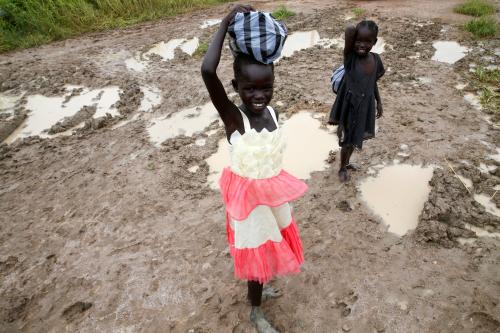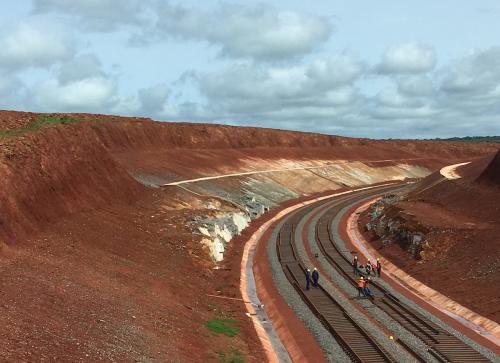United States reveals details of Prosper Africa program
On Wednesday, USAID Administrator Mark Green provided details on the government’s Prosper Africa program at the Corporate Council on Africa’s conference in Maputo, Mozambique. The program, announced back in December 2018 by National Security Adviser John Bolton, aims to double trade and investment between the United States and African countries in the coming years. The program is expected to have an initial budget of $50 million and will involve 18 government agencies working in coordination.
According to Green, Prosper Africa will facilitate U.S. business engagement in Africa by providing blended finance and loan guarantees as well as helping companies de-risk their investments. Under the approach, USAID trade and investment hubs in Africa will be converted to multiagency platforms and integrate more technical advisers to provide support. Furthermore, USAID will open a new trade and investment hub in North Africa. According to Green, the program “will level the playing field for U.S. businesses by identifying and removing policy regulatory and logistical trade barriers in ways that increase transparency and lower the cost of doing business in Africa.”
In a related announcement last week, the United States Trade and Development Agency launched its Access Africa initiative, which aims to increase U.S. private sector investment in information and communications technology (ICT) infrastructure in sub-Saharan Africa. The program is in line with the goals of the government’s broader Prosper Africa initiative.
World Refugee Day brings both reflection and urgency
Thursday, June 20 was World Refugee Day, a day declared by the United Nations to be used to “celebrate and honor the vast contributions that refugees make.” The African Union also designated 2019 as the “Year of Refugees, Returnees and Internally Displaced Persons in Africa: Towards Durable Solutions to Forced Displacement.”
In acknowledgement of World Refugee Day, on Wednesday, the United Nations announced that the number of people displaced by conflict (including refugees, internally displaced people, and asylum seekers) worldwide is at its highest level ever, at over 70 million. According to the World Bank, the number of refugees and asylum seekers is more than the entire population of Australia. Two African countries, South Sudan and Somalia, are among the top five sources of refugees in the world. African countries, especially Uganda, Kenya, and Ethiopia, also host the most refugees in the world.
Just last year, the U.N. affirmed the Global Compact on Refugees, which includes a “program of action” with concrete measures to address the challenges facing refugees, internally displaced people, and asylum seekers, including arrangements to share burdens and responsibilities through a Global Refugee Forum to take place every four years, national and regional arrangements for specific situations, and tools for funding, partnerships, and gathering and sharing data.
For a reflection on life as a refugee from South Sudan, see the recent post by former Brookings Africa Growth Initiative visiting researcher and Young African Leaders Initiative fellow Victoria Nassera: “My rise as a refugee girl: Why I’m giving back to girls in South Sudan.”
Ebola and ethnic violence simmer in the DRC
On Tuesday, June 18, the United Nations announced that more than 300,000 people have fled ethnic violence in northeastern Democratic Republic of the Congo (DRC) in the past several weeks. Since June 10, at least 161 people have been killed in northeastern DRC due to ethnic clashes between farming and herding communities. The situation has deteriorated in the last week, with multiple attacks and counterattacks between ethnic groups.
The mass displacement is creating new challenges for a region also affected by an Ebola outbreak. Over 1,400 people have died from Ebola in the DRC since August, in the second-worst outbreak of the disease since the 2013-16 West African epidemic. Furthermore, last week, Ebola was confirmed to have spread over the border from the DRC to Uganda after two people who travelled from the DRC died in Uganda from the disease.
The World Health Organization (WHO) estimates that $98 million is needed to contain the spread of Ebola in the DRC and Uganda. Currently, only one-third of that amount is available. International efforts to curb the spread of Ebola also face challenges from community resistance and militia attacks that have disrupted critical health operations.





Commentary
Africa in the news: Prosper Africa, World Refugee Day, and DRC updates
June 22, 2019